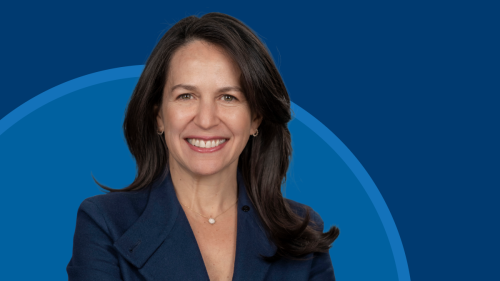Editor’s Note: Governance reform at the IMF is one of the most critical tasks facing the institution. In early 2009, the IMF Managing Director, for the first time in the Fund history, called for global consultations with civil society to gather its input in the current reform process. In a presentation before IMF Executive Directors, Domenico Lombardi, who served as rapporteur for the consultations, shared the main points of the final report of the Fourth Pillar (civil society) consultations on IMF governance reform. The report to the IMF Managing Director summarizes the scope and breath of global consultations and stresses the need for an inclusive and accountable governance framework.
Civil society—including academia, think-tanks and NGOs—has been following the IMF reform process for many years but this is the first time that the Fund takes the initiative of engaging civil society in the context of the so-called Fourth-Pillar consultations. In this respect, I would like to express appreciation to the Managing Director for providing—for the first time, let me say it again—a framework for civil society to express its input in the current reform process. I would also like to express my gratitude to the EXR staff, in particular to Jeremy Mark and Silvia Zucchini, and to the technicians and the translators. They all have provided outstanding technical support throughout these consultations.
Let me now turn to the report. The outcome of these global consultations is summarized in the document that was circulated to you last week. It summarizes the scope and breadth of the global consultations through a truly collaborative process that has seen the active participation of all the stakeholders involved. They ranged from former senior officials to academics, from think-tank scholars to NGOs in rural villages in landlocked African countries.
Despite their diversity, participants to these global consultations shared one premise and one objective. The premise they share is that they believe, and have an interest, in a stronger IMF—in an institution that can discharge its mandate more effectively. The objective they have in common is to leverage on these consultations to reach the decision-making organs of the Fund to express their views openly and constructively. For some of you, the recommendations resulting from this consultative process may not be new, for others they may even sound revolutionary. Whatever you take out of this report, let me emphasize that its strength lies in the global consultative process that underpins its recommendations.
These consultations started off from the awareness that the IMF, as a multilateral institution, can only be effective to the extent that its member countries offer their cooperation. This puts the emphasis squarely on the governance framework, which provides the channels through which members are engaged and their expectations channeled.
Simply put, this requires that its governance be inclusive—that is, the decision-making actors have an incentive in listening to the members—and be accountable—that is, members ought to be able to ascertain whether and to what extent their desiderata have been taken into consideration in the institution’s decision-making. Given the public nature of the IMF mandate, governance is therefore key to institutional effectiveness.
Inclusiveness
Inclusiveness refers to a set of formal and informal arrangements underpinning the distribution of the institution’s organizational power. For example, the distribution of voting power across the membership, the allocation of executive board seats, and majority decision rules are example of formal arrangements. Equally important are the informal arrangements, as they also shape the institutional power-sharing. The most well-known practices are those followed in the election of the managing director and the appointment of his deputies. But there are several other informal arrangements relating to the practices followed in the appointment or election of executive directors, and other informal power-sharing arrangements within multi-country constituencies.
The consultations underscored the primacy of reviewing the current distribution of voting power within the institution, as this is heavily biased toward Western countries. Not reflective of the new economic order, it challenges the legitimacy of the Fund and undermines its effectiveness. It was clearly emphasized, for instance, that the current distribution of voting generates a significant asymmetry, insofar as a minority of members (holding a majority of the votes) makes decisions applicable to the broad membership. That same minority, however, unilaterally exempts itself from compliance due to the control it exerts over the institution’s decision-making.
A re-balance in the voting power is also needed to improve the composition of the executive board so as to give members from other, less-represented regions an opportunity to thoroughly contribute to board deliberations. The view was expressed that some consolidation of the European representation is key in this regard.
The consultations, moreover, pointed to the need to improve representation on the executive board beyond the mere reallocation of chairs and shares. It was pointed out, for instance, that the duality in the current representation whereby there are eight single-country chairs forces the remaining 177 members to be represented by the remaining 16 chairs. In some cases, this creates situations where there are multi-country constituencies representing over 20 countries. But this is not a necessary byproduct of the constituency representation system. In fact, a constituency could average eight members or so if all the chairs were elective. At present, the five appointing-chairs cannot form constituencies, even if they wanted to.
Not surprisingly, stakeholders did stress their difficulties in interacting with the executive directors. One of the reasons they pointed out to, is the large size of some country groupings, which makes unfeasible for the concerned directors to visit their member countries as often as needed to build a meaningful relationship with the broader stakeholder community. It is significant that this concern was expressed also in countries which have had, at some point in the recent past, significant program relationship with the Fund.
Participants also underscored that the current majority rules coupled with the skewed distribution of voting power acts to further undermine the legitimacy of the IMF. As a case in example, the election of the managing director, by requiring a simple majority of votes, provides the legal underpinning to allow a few members to steer the whole selection process. A double majority voting, it was suggested, would create stronger incentives for broadening the consensus base.
The consultations reiterated the well-known position of the civil society that the selection of the managing director and of his deputies should hinge on a merit-based, transparent process without any restriction to the nationality of the candidates. This very latter addendum qualifies the civil society’s position vis-à-vis the positions expressed by the Trevor Manuel Commission as well as the G-20 Finance Ministers. Participants held the view that the selection should be based upon a thorough job description and a list of high professional requirements that executive directors should set. These requirements, moreover, should be symmetric, in the sense that executive directorships should also be awarded upon the formulation and disclosure of thorough job descriptions and a list of high professional requirements set by the board of governors.
Tapping into the ongoing discussions on IMF reform, some participants acknowledged the importance of establishing a ministerial council with the aim of giving political impetus to the institution’s decision-making. The establishment of a council, however, should materialize only in a context where substantial reforms are also being addressed. Otherwise, there is a risk that the council would amplify rather than reduce the current sources of bias in the Fund decision-making.
Accountability
Civil society regards accountability as the basis for the IMF to forge a broad consensus for pursuing its own mandate. The Fund’s governance, however, only contains general references to accountability, due to the narrow scope and technical nature of activities in the institution’s early days of operation.
The board of governors has, over time, delegated all the power it could to the executive board. Yet, the board of governors has never performed any assessment of the executive board nor has it set any professional standards for the appointment or election of executive directors. Combined with the lack of transparency in the board proceedings, this drives a wedge between board representatives and their respective shareholders and stakeholders.
Against this backdrop, the consultations have conveyed the view that the executive board should be evaluated in line with the current principles of accountability. The board of governors should set up a committee with the responsibility of overseeing reviews of performance of the executive board. Periodic evaluations should be carried out by independent external evaluators. Moreover, a self-assessment of the executive board should be facilitated by a committee of executive directors.
To strengthen the accountability of the managing director, the executive board should establish a formal, periodic process of assessment of his performance, including through the use of outside expert advisors. Such regular assessment would presuppose a clearly-defined remit formulated by the executive board for which the managing director and management would be held accountable.
Clearly, the establishment of a best-practice evaluation system across the whole accountability chain at the Fund would require that the current dual role of the managing director as chief executive officer of the institution (that is, the highest executive role) and chairman of the executive board (that is, the highest supervisory role) is clarified. To take just one example of the potential conflict this structure creates, for an evaluation of the managing director to be meaningful, it should be set against a “strategic plan” developed by the executive board at the beginning of the evaluation period. This, however, would prove challenging since the board itself encompasses management, and there is legally no “board” without management chairing it. This is why the dual role of the managing director should ideally be discharged by two different persons. Alternatively, executive directors should be allowed to meet as needed to discharge their supervisory role without management chairing them. Along similar lines, board committees should not be chaired by management due to their strict supervisory role.
On transparency, the consultations have uncovered that it has been applied unevenly throughout the Fund. Board proceedings can only be accessed after a 10-year lag, and stakeholders stressed this is a further source of difficulty in engaging with their respective representatives as they have no idea of how he or she would be contributing to the board’s deliberations. As a way of strengthening interactions with civil society, participants strongly argued in favor of the timely disclosure of draft policy papers so as to be able to provide their representatives with their own input.
More broadly, participants underscored the need for the Fund to increase its accountability by enabling the institution as well as stakeholders to determine whether the conduct of Fund officials conforms to the standards for measuring their performance. Such standards are defined in terms of operational policies and procedures that must be met in designing and implementing Fund operations. At present, the IMF does not have formal operational policies and procedures, which are board-approved and disclosed to the public. Neither has the Fund an accountability mechanism—in the form, for instance an ombudsman—on which stakeholders can rely on to hold the IMF accountable for its operational policies and procedures. This mechanism would be relatively informal and flexible; it would function as a problem-solver and would contribute to institutional learning. Moreover, it would bring the Fund in line with the practices observed by the other international financial institutions and would bolster the confidence of stakeholders that the Fund intends to be accountable for its own actions.
This ends my brief overview of the report. Obviously, it has been by far a less than exhaustive account of all the issues that were discussed and for which I would need to refer to the full report before you.
I am available to take any questions you might have either on this presentation or on the report itself as well as any clarification you may want to ask on the consultative process. Meanwhile, I do appreciate the opportunity for this discussion and I thank you for your kind attention.
The Brookings Institution is committed to quality, independence, and impact.
We are supported by a diverse array of funders. In line with our values and policies, each Brookings publication represents the sole views of its author(s).



Commentary
IMF Governance Reform and Civil Society
September 8, 2009